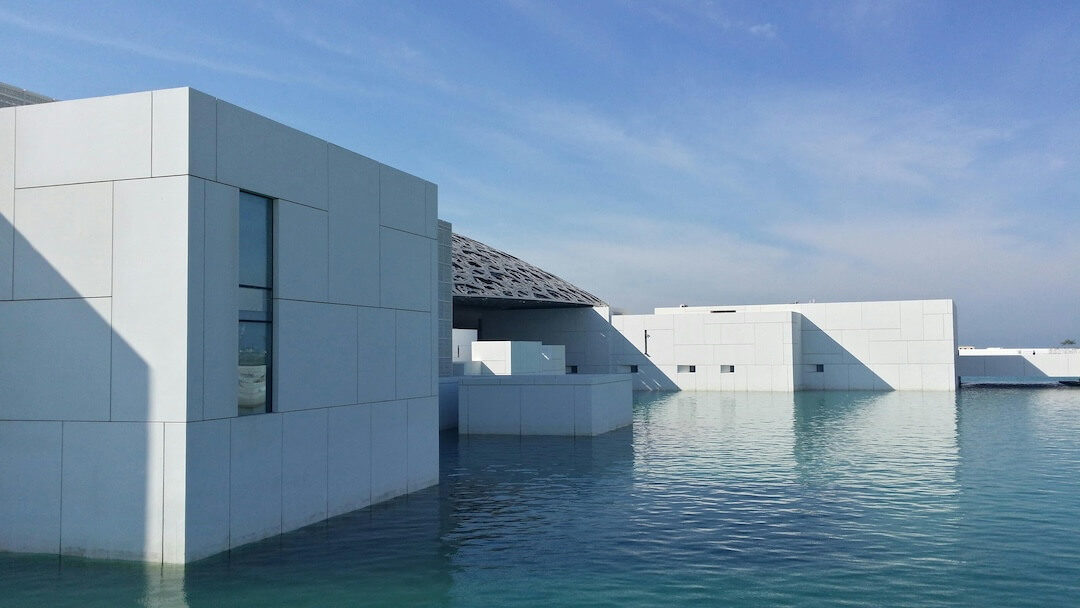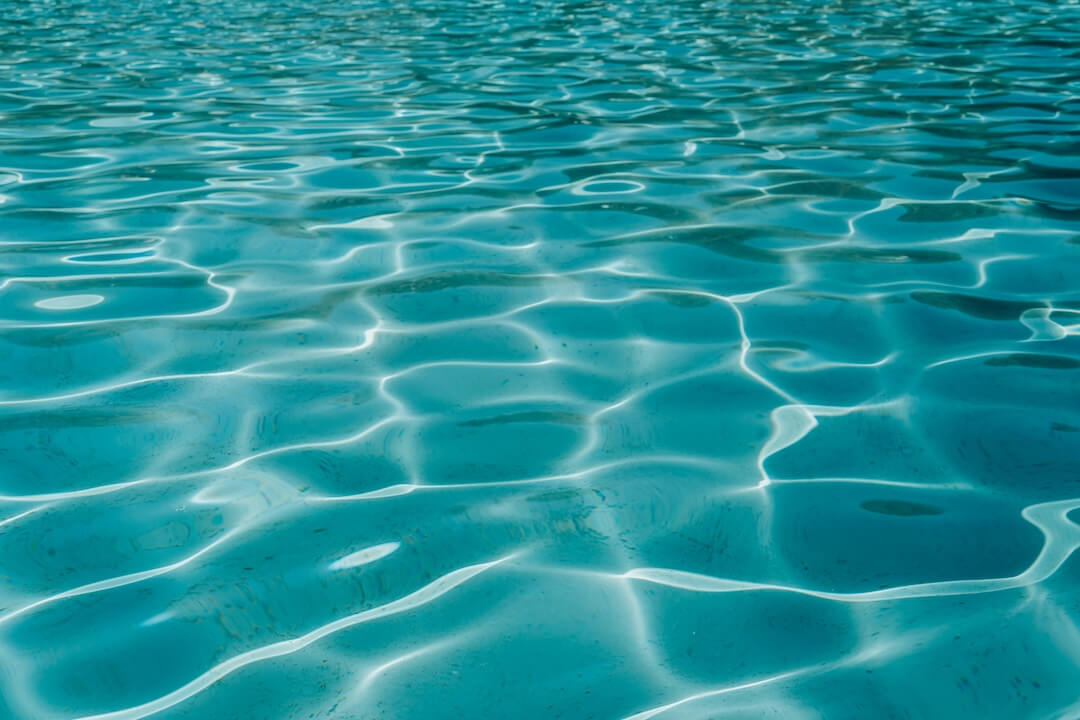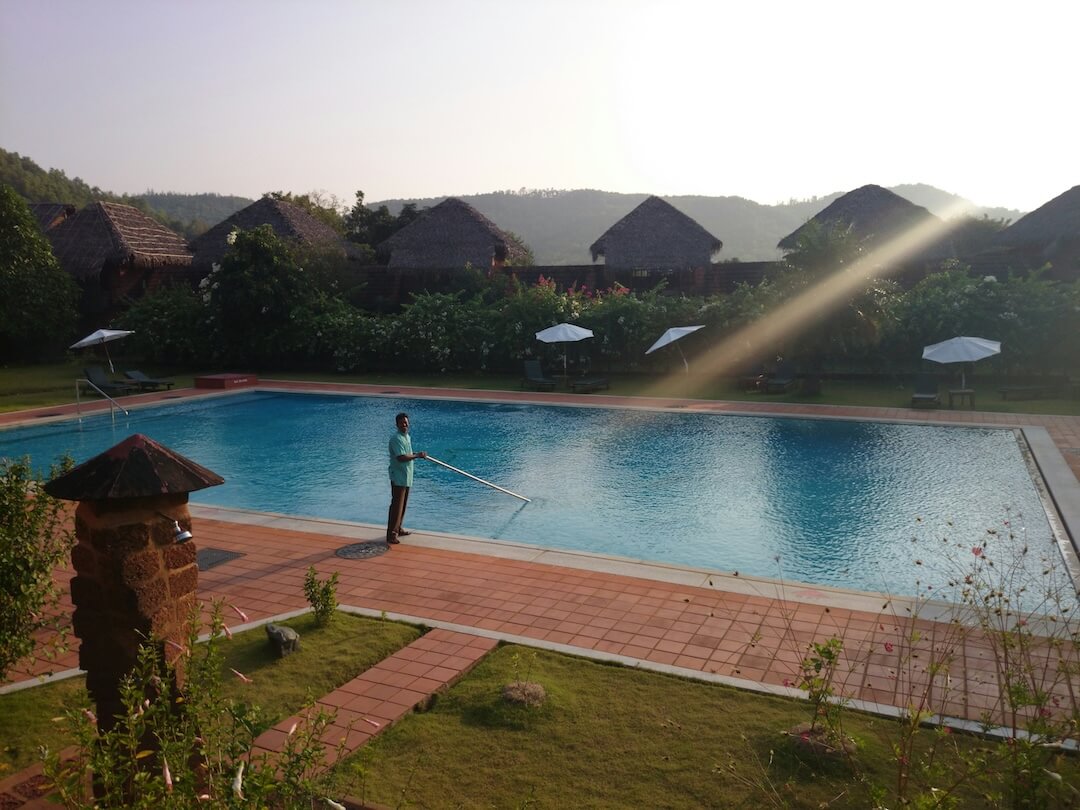How to Balance Pool pH Levels

How to Balance Pool pH Levels
Maintaining the correct pH level in your swimming pool is essential for ensuring water clarity, safety, and overall pool health. For residents of Miami Springs, where warm weather encourages frequent swimming, understanding how to properly balance your pool's pH can prevent costly repairs and promote a more enjoyable swimming experience. Our pool experts are here to guide you through the essential steps to keep your pool water in optimal condition.
Understanding the Importance of pH Balance in Your Pool
The pH level measures how acidic or alkaline your pool water is, with a scale ranging from 0 to 14. A pH of 7.0 is considered neutral, while levels below 7.0 are acidic, and above 7.0 are alkaline. For pools in Miami Springs, maintaining a pH between 7.2 and 7.6 is ideal. Proper pH balance not only keeps the water comfortable for swimmers but also ensures that sanitizers like chlorine work effectively to eliminate bacteria and algae. When the pH drifts out of this range, it can cause problems such as cloudy water, scaling, or corrosion of pool equipment.
Understanding why pH balance is vital helps pool owners realize that regular testing and adjustments are necessary to prevent issues that can compromise water quality and safety. Our specialists recommend routine inspections, especially in Miami Springs's warm climate, where evaporation and algae growth can influence water chemistry quickly.
How to Test Your Pool pH Levels
Regular testing is the first step toward maintaining a healthy pool. There are several reliable methods to check your pool’s pH, including test strips, liquid test kits, or digital testers. For most homeowners in Miami Springs, using test strips offers convenience and rapid results, but for more precise readings, liquid or digital testing is preferred.
To test your water, collect a sample from waist-deep water and follow the instructions on your testing kit. In Miami Springs, testing weekly during the swimming season is advisable, especially when the weather is hot and sunny, which can accelerate pH fluctuations. If you notice a pH reading below 7.2 or above 7.6, it’s time to take corrective action. Consistent testing empowers you to react promptly and avoid problems such as skin irritation, eye redness, or equipment damage.
How to Adjust pH Levels in Your Pool
Adjusting the pH in your Miami Springs pool involves adding specific chemicals to either raise or lower the water’s alkalinity. If the pH is too low—below 7.2—you should add a pH increaser, commonly sodium carbonate (soda ash). For levels that are too high—above 7.6—adding a pH decreaser, usually muriatic acid or sodium bisulfate, is necessary.
When adding chemicals, always follow the manufacturer’s instructions carefully. It’s best to add chemicals gradually, dispersing them evenly across the pool surface while the pump runs to promote thorough mixing. Allow the water to circulate for at least a few hours before re-testing. In Miami Springs’s warm climate, quick adjustments may be required, especially after heavy rain or frequent use, which can alter the water’s chemistry.
Our pool specialists recommend maintaining pH within the target range consistently, as sharp fluctuations can cause problems like scaling or corrosion. Routine adjustments, combined with proper testing, help sustain optimal water quality and extend the lifespan of your pool equipment.
Common Causes of pH Imbalance in Miami Springs Pools
Several factors contribute to pH imbalance in pools, particularly in Miami Springs’s unique environment. High temperatures, frequent swimming, evaporation, and the use of certain chemicals can all influence pH levels. For example, sunlight can increase algae growth, which may cause pH to rise as the algae metabolize nutrients. Additionally, heavy rainfalls and the influx of debris can alter the water chemistry, requiring immediate attention.
Our experts note that chlorine addition can also affect pH. When chlorine is added, it can slightly increase the pH, necessitating timely adjustments. Furthermore, if the pool’s alkalinity is not properly maintained, it can make pH balancing more difficult. Regularly monitoring alkalinity, ideally kept between 80 and 120 ppm, provides a buffer to stabilize pH.
Understanding these causes helps Miami Springs residents stay proactive, avoiding stubborn pH issues that can compromise water quality and swimmer comfort. Our specialists are always available to assess your pool’s condition and recommend customized solutions.
Tips for Maintaining Water Chemistry in Miami Springs
Effective pool maintenance involves more than just balancing pH; it requires a holistic approach to water chemistry. For Miami Springs pool owners, this includes maintaining proper alkalinity, sanitization, and regular cleaning routines. Consistent testing and chemical adjustments are fundamental, but other practices can also enhance your pool’s health.
Shocking your pool periodically with a chlorine or non-chlorine shock can remove contaminants and algae, helping to keep pH stable. Ensuring proper filtration also plays a critical role; clean filters improve water circulation, reducing uneven chemical distribution that can cause pH swings.
In Miami Springs, where high temperatures accelerate evaporation, topping off your pool with fresh water is necessary and can affect pH. Always re-test after adding water and make adjustments as needed. Using algaecides or clarifiers periodically can help prevent issues that influence pH levels.
Our pool experts recommend establishing a regular maintenance schedule, including weekly testing, chemical balancing, and cleaning. This routine not only preserves water clarity but also prevents costly repairs related to scaling, corrosion, or algae growth. Staying ahead of water chemistry challenges ensures your pool remains a safe and enjoyable retreat for your family.
When to Call Professional Pool Services in Miami Springs
While many pool owners can handle routine pH adjustments on their own, certain issues require professional expertise. If you experience persistent pH imbalances despite regular testing and chemical adjustments, it’s time to consult our specialists. Significant scale buildup, corrosion, or cloudy water can signal underlying problems that need advanced solutions.
In Miami Springs, where climate conditions can make maintaining water chemistry more challenging, professional pool services offer comprehensive assessments. Our experts can perform detailed water testing, diagnose chemical imbalances, and implement corrective measures efficiently. Additionally, if your pool’s equipment shows signs of malfunction or corrosion, professional intervention can prevent further damage and extend equipment lifespan.
Contact us whenever you need assistance with complex water chemistry issues or ongoing maintenance. Our team is dedicated to helping Miami Springs residents enjoy a pristine, healthy pool year-round. Routine professional check-ups can save you money and time while ensuring your pool remains a safe, inviting oasis.
Final Thoughts on Maintaining the Perfect pH Balance in Your Miami Springs Pool
Achieving and maintaining the ideal pH level is a cornerstone of quality pool care. For Miami Springs homeowners, understanding the importance of balanced water chemistry can make all the difference in enjoying a safe, clean, and crystal-clear pool. Regular testing, timely chemical adjustments, and vigilant maintenance are essential practices that promote water clarity and extend the life of your equipment.
Remember that environmental factors unique to Miami Springs, such as high temperatures and frequent rains, can influence your pool’s pH balance, requiring you to stay alert and proactive. Our pool specialists are always ready to assist you with expert advice, tailored solutions, and professional services to keep your pool in perfect condition.
Investing time in proper water chemistry management ensures your swimming experience remains enjoyable and safe for everyone. Contact our team today to learn more about how we can assist you in maintaining your pool’s pH balance and overall water quality in Miami Springs.



